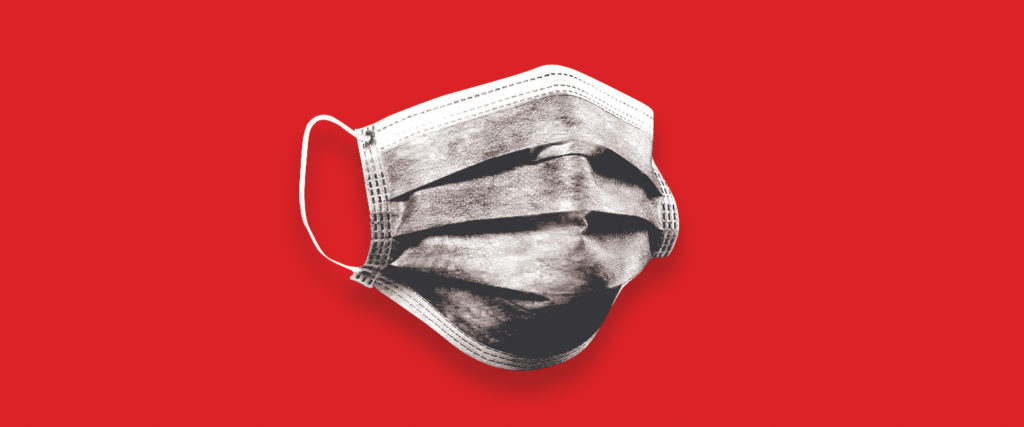Could the coronavirus outbreak lead to a wave of unionization in retail?

The coronavirus outbreak has led workers from all kinds of industries to push for greater protections from their employers. Retail is no exception.
At retail stores that have been classified as essential, like pharmacies and groceries, some workers are pushing for hazard pay, as they grow increasingly worried that coming into their stores each day means putting their personal health at risk. They’re also asking for their employers to provide them with personal protective equipment, like masks and gloves. Meanwhile, some workers at stores like GameStop and Joann Fabrics have tangled with managers over the fact that they believe corporate has wrongly classified their stores as essential.
This begs the question of how, once the coronavirus outbreak slows, which temporary changes to a retailer’s paid sick leave policy or pay increases will stick. One potential outcome: that more retail workers will seek to unionize.
The union and workers advocacy groups Modern Retail spoke with demurred on the question of whether or not they think the coronavirus outbreak will lead to more unionization. It will likely depend on what types of on-the-job protections and pay increases unionized retail workers are able to secure in the coming weeks that non unionized workers will not. But one thing is certain: that many workers themselves, particularly those at grocery stores and pharmacies, have a clearer picture than ever before of how critical their jobs are. As such, many of them are are proving more willing to argue for the benefits that they think critical jobs deserve.
As of 2019, just 4.1% of retail and wholesale workers in the U.S. were members of unions, according to the Bureau of Labor Statistics. Education, meanwhile, was one of the sectors with the highest percentage of unionized workers, at 33.1%. The largest union groups in retail are the Retail, Wholesale, and Department Store Union, which represents thousands of workers at chains including Bloomingdale’s, Macy’s, H&M, and Zara, as well as its affiliate,the United Food and Commercial Workers Union, which represents workers at Kroger’s and Albertsons, among other chains.
Chelsea Connor, communications director for the Retail, Wholesale, and Department Store Union, said the union’s focus during the coronavirus outbreak has not been trying to unionize new groups of workers, but to ensure that its current members are getting the most from their contracts. “Day 1 when this outbreak started, we did initial outreach to all of our companies sort of saying this is how we understand the terms of our contract, and as this progresses, we want to be in constant contact,” Connor said.
She said that most of the contracts have force majeure clauses that trigger certain protections once states or localities declare a state of emergency, which many of them have done at this point in response to the coronavirus.
Ad position: web_incontent_pos1
“Where possible, we’ve been trying to work with companies to get the maximum amount of protection,” she said, for workers on the job. Examples include allowing workers to wear masks and gloves on the jobs, and getting retailers to instal plexiglass partitioners, to ensure minimal contact between workers and customers in areas of the store with high foot traffic like cash registers. Kroger was one such retailer that said it would start installing plexiglass partitioners at cash registers this week.
Adam Ryan, a liaison for workers advocacy group Target Workers Unite, said that his group has gotten a lot of outreach within the last couple weeks from current Target workers who want advice on how to deal with managers who are discouraging them from wearing gloves or masks on the floor.
In response to the coronavirus outbreak, Target Workers Unite released a petition calling on Target to offer hazard pay to employees, shut down non-essential departments, and provide N95 masks, gloves, and eye protection for workers. Some changes Target has made in recent weeks include temporarily increasing wages by $2 an hour through May 2, pledging to pay workers for 14 days who are placed under quarantine or confirmed to have coronavirus, and have telling stores this week to start cleaning checklanes each time a new shopper comes through. But Target Workers Unite feels those provisions don’t go far enough. Target declined to comment on the petition when reached for comment.
Ryan, also a part-time worker at a Target store in Virginia, said he still did not think Target workers “have the saturation we need across stores to pull off a union vote.” But if anything, he said that he did think the coronavirus outbreak has prompted the workers he’s spoken with to change how they view their jobs.
“It is very common for us to hear we’re not real workers, and [retail jobs] are not real jobs, especially prior to all this” Ryan said. “Now that we are essential workers, I think it’s shifted that mentality, not just for the general public and customers, but also for the workers.”

